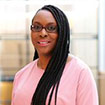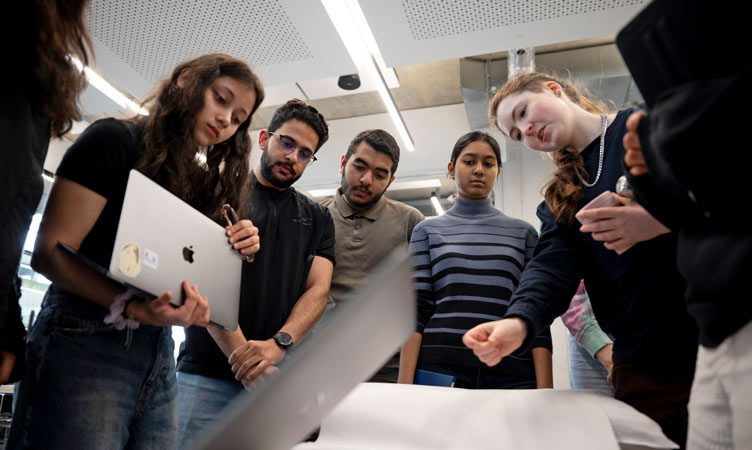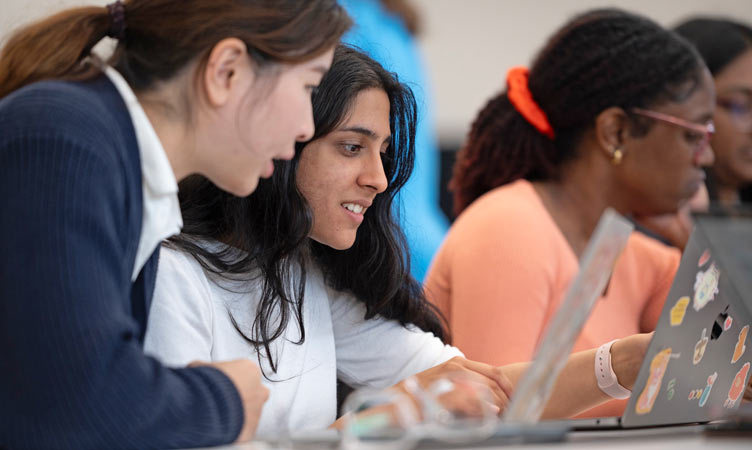What makes a good doctor in today’s world? This question guided RCSI’s Transforming Healthcare Education Programme (THEP) – a significant overhaul of its medical curriculum.
When reflecting on the university's duty to ensure that graduates are equipped to become competent, capable, and resilient doctors, Professor Gozie Offiah, Associate Professor and Director of Curriculum, led a collaborative effort with her colleagues to understand the changing landscape in which today's doctors practice.
First, they identified that today’s doctors are increasingly global, not only working anywhere in the world, but also treating patients from all different backgrounds and cultures.
Second, modern doctors work in a digital world, increasingly augmented by artificial intelligence. Patient records and databases are either online or moving online. Robotics already plays an important role in many surgical procedures, while artificial intelligence is being used for patient care, public health analysis and diagnosis.
Third, climate change and environmental pollution will continue to impact population health. As the average temperature warms, pathogenic diseases are spreading to new areas, while intense heat waves and cold snaps are leading to increased deaths.
The team focused on how they could develop doctors who could work in transnational and cross-cultural environments, with strong communication skills.
The new curriculum focuses on three key pillar skills: head, hands and heart. In this paradigm, the head represents the medical knowledge that they need for effective practice. The hands represent the practical skills and tools that they need to master. The heart embodies their personal and professional identity: an ability to self-reflect, learn and grow so that they can both manage their own career and also bring an empathetic and positive approach to their interactions with patients.
While other medical schools have engaged with some of these concepts, RCSI’s provision of a student-centred learning environment, positive education principles with a focus on personal and professional identity formation alongside positive growth, well-being and leadership, and active, engaged learning experiences makes it distinctive.
In the new curriculum, large lectures continue, but the class of 360 students each year is divided into six groups, or ‘learning communities’ of 60. Within these groups of 60, they are then further divided into five sub-groups. In a strongly multicultural environment like RCSI, this helps to ensure that students mix with peers from different backgrounds, cultures and perspectives – a skill they will need to thrive in a modern healthcare environment. And it means that, unlike a large class of 360 students, nobody can either hide away or be overpowered by stronger voices: everyone has a chance to shine and be seen.
From an educational perspective, smaller group learning fosters a student-centred environment where integrated curricula and evidence-based methods drive active, engaged, and authentic learning experiences. This approach allows educators to seamlessly connect foundational and clinical sciences through case-based scenarios, such as exploring a patient with heavy periods and fatigue, to illuminate clinical conditions, integrate physiology of red blood cells, and reinforce scientific understanding while viewing illness within the patient’s context. This nurtures a community of learning that promotes self-awareness, resilience, and a growth mindset. By aligning with individual learning styles, it creates meaningful, personalised pathways to knowledge and supports positive academic and professional development.
There has also been a significant reform of assessment. Instead of one big, high-stakes final exam at the end, RCSI has much smaller, lower-stakes assessments throughout the year, ditching a focus on passing or failing and adopting a new approach that’s focused on growth, improvement, understanding and self-reflection, allowing students to grow and build their confidence. Every medical student is allocated a personal tutor, and they meet three times per year to check in and discuss what is working well and what challenges they need support with.
Ultimately, when a doctor understands themselves, their own well-being grows too, providing a space for empathy that places their patients at the centre of all they do.
Students in the new curriculum have highlighted the strong impact of the personal tutor programme, valuing the meaningful connections they form with senior academics who truly know them. They are particularly enthusiastic about the case-based learning approach, which they say brings real-world relevance and makes them feel like doctors from day one. The ‘little and often’ assessment model has been especially well-received, helping them stay consistently engaged and on top of their studies – far preferring this continuous approach over the pressure of a single final exam.
 Professor Gozie Offiah is an Associate Professor and Director of Curriculum, School of Medicine, at RCSI University of Medicine and Health Sciences.
Professor Gozie Offiah is an Associate Professor and Director of Curriculum, School of Medicine, at RCSI University of Medicine and Health Sciences.
RCSI is committed to achieving a better and more sustainable future through the UN Sustainable Development Goals.
![]()
![]()



